By Don DeBar
Over the objection of the African Union, US attacks Libya
March 20, 2011 at 4:24am
Posted on the Black List Pub at http://theblacklistpub.ning.com/.
NEW YORK – In a move reminiscent of Senator Mike Mansfield’s observation that “Only a Nixon could go to China,” President Barack Obama has begun a military invasion of Africa.
For those unaware, Libya is in Africa.
Ignoring the call of the African Union – the regional organization having jurisdiction which counts every African nation save Morocco among its members – and channeling the political ghost of George W. Bush on the eighth anniversary of the “Shock and Awe” attack on Iraq, “America’s First Black President” ordered the launch of some 110 Tomahawk missiles on Libya Saturday, killing an unknown number of Africans for oil.
According to various media sources, Libyan authorities reported that 48 people were killed and more than 150 injured, most of them civilians, and that the missiles hit civilian targets, among them a hospital in Tripoli, in an attack that Obama claimed was intended to protect civilians from the Libyan government.
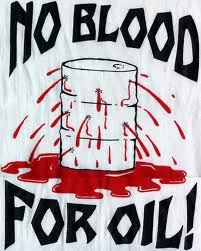 At present, as we saw during “Shock and Awe” and have seen pretty much every day since, the mainstream media tell the same story, if in different words – that Gadhafi is crazy, that he’s a brutal dictator, that this is not about oil, and that we will be in and out quickly. And this time again, as in Yugoslavia, Afghanistan and Iraq (and more recently in Cote D’Ivoire), we have seen the so-called progressive media pile on in the demonization of the leadership that is a prerequisite to progressive acquiescence, if not outright acceptance, of imperial intervention.
At present, as we saw during “Shock and Awe” and have seen pretty much every day since, the mainstream media tell the same story, if in different words – that Gadhafi is crazy, that he’s a brutal dictator, that this is not about oil, and that we will be in and out quickly. And this time again, as in Yugoslavia, Afghanistan and Iraq (and more recently in Cote D’Ivoire), we have seen the so-called progressive media pile on in the demonization of the leadership that is a prerequisite to progressive acquiescence, if not outright acceptance, of imperial intervention.
However, facts are pesky little buggers, and have – and will – give the lie to the best conducted campaigns of obfuscation and misdirection, over time.
One example – do we still believe that the Iraqi people want to give us flowers for bombing, and then invading, invading their country – particularly after we had starved it for a decade prior?
Meanwhile one wonders here in New York how a former Senator from this state who helped sell the Iraq debacle and lost the presidency as a consequence is now apparently making war policy for the White House over the objections of the Secretary of Defense. Could it be that elections here matter as little as they are claimed to in those varied places around the globe that await our enlightened intervention?
One thing for certain – once again, the symbolism of the first-strike attack couldn’t tell the story more clearly. The Tomahawk missile barrage features a weapon ostensibly named after a weapon of self-defense by the original inhabitants of this continent. To those who value truth, however, it is known that, in the first act of nation-building by the bearers of the missiles, those original peoples suffered genocide at the hands of these purported freedom-lovers so complete that it lacks historical analogy before or since. That these weapons are now being used on the people of Africa – the second stop for genocide in the building of that nation of hypocrites – simply makes the point for those too blind to see it in the first case.
The United States, Britain and France have launched air and sea attacks on forces loyal to Libyan ruler Muammar Gaddafi to enforce a no-fly zone.
Press TV has discussed the issue with John Rees from the Stop the War Coalition in London.
Press TV: Regarding the no-fly zone, would you share your thoughts with us on the implementation of that UN Security Council resolution?
I think it’s immediately clear that what many people imagined to be the look of a no-fly zone has been completely contradicted by the very first hour of its implementation. I think most people kind of thought it would be a kind of neutral pacific umbrella, which would allow revolutionary forces to regain momentum inside Libya itself.
But what is absolutely clear now is that with 110 Tomahawk cruise missiles fired within a matter of hours and with air sorties being run over Libya the Western intervention will entirely transform the nature of this conflict.
It’s not about helping the Libyan people it’s about asserting the power of Western imperial nations in this part of the globe.
Press TV:
Let’s discuss the resolution itself a little more. There doesn’t seem to be an end-game designated in this resolution; no time frame; and also the targets have not been defined as to which targets are to be attacked and which are not. Can you tell us more about the missing addendums in this resolution?
It is increasingly clear that rather than being a specific and illuminative commitment it is indeed as you say an open-ended one. I believe it is a revival of an old UN resolution, which does rather give you the impression that something has been designed here, which is to give the freest possible hand to the military of the big powers and not to circumscribe their activity in any way whatsoever.
Press TV: You mention it’s been designed in a way to give mostly the Western powers as much freedom as possible, but the question that pops into mind is – is it just going to end there, is what we are seeing with the foreign military intervention in a no fly zone going to be the end of it?
John Rees: The obvious risk is that it won’t; that this will be the wedge. And we can imagine scenarios so easily I think where the war would descend from the air to the ground.
For instance, what would be the situation if Libyan air defenses bring down one of the major powers’ aircraft? Or, if they capture a pilot and display that pilot perhaps after torture on the television screens – will we not then here very insistent voices in London and Paris and in Washington saying that special services need to be deployed or perhaps larger numbers of troops? What if Gaddafi continues to fight a conflict with the Libyan people, which he hasn’t mainly done through air power by the way, it’s been perhaps 90 percent to do with ground forces? What if he continues that struggle and the no fly zone doesn’t halt his attack on the Libyan revolution? Will there not then be calls for further measures?
I think we’ve been here before; we’ve seen what happens before and I think the dangers are all too apparent now.
Press TV:
Some very interesting points you’ve mentioned there. Apart from the reasons that might demand further intervention from foreign forces in Libya, what about the aftermath of the resolution? Do you think the US is going to be obliged or assume the role of a protagonist in the survival of the revolution?
I think the US is certainly engaged obviously militarily. And if it is a lasting conflict it will be the US overwhelming military arch that is called upon to do the bulk of the fighting. Certainly the overstretched British forces deployed already in Afghanistan to be cut to 93,000 personnel if the current government carries through its defense review are not going to be conducting any type of long term commitment here.
So, if it lasts longer and if they are drawn into greater deployment it will be the US, which is at the heart of that. And they will alter the character of what’s going on. They are not there to defend the revolution; they are there to halt or freeze revolutionary developments and to gain a hand in a fast moving series of revolutionary movements in the Arab world, which has left them utterly disconcerted, that’s what this is about.
Press TV: Prior to the implementation and of the drafting of the resolution of the no fly zone – how come the US has been taking a back seat in all of this?
I think for two reasons really. Anybody who’s watched the international opinion poll will know that US international standing is at an all-time low after Iraq and Afghanistan and so it makes sense in PR terms that they’re not seen to lead this. And anybody who has studied domestic opinion polls will know that the Afghan war is massively unpopular in the US; deployment in this conflict is also unpopular in the US and this president ran on his record of arguing for withdrawal – which still hasn’t happened – form Iraq.
So there are both domestic and international reasons why the US would prefer to others rode in the forward seat on this particular expedition.
Press TV: Regarding the events that are going to be transpiring on the ground, is this no-fly zone going to be enough to shift the momentum of what’s going on in favor of the revolutionaries?
John Rees: Military events in the middle of battle are notoriously hard to predict. I think it was Napoleon who said that no plan survives contact with the enemy. So I think we’ll have a very different picture perhaps in two or three days’ time than we have at the moment.
But I think we do have to be clear that this is not the purpose; it’s not the motivation for the US to intervene to assist the revolutionary process. If that is what they were interested in, after all, they wouldn’t be allowing the Saudis and the Qataris and others to try to crush the revolution in Bahrain.
If assisting revolutions was their aim that contradiction wouldn’t exist. They have interests in Libya and they have a genuine interest I think in hoping they can draw a line in front of the further advance of the revolutionary movement throughout the Middle East. And that means intervening to at least freeze the revolutionary process in Libya and allowing the surviving dictators to attack the revolutionary forces in other countries without them even mentioning the question of intervention let alone actually acting on it.
Press TV: You mentioned a few Arab nations in your comments. What can you tell us about the Arab world’s reaction and their willingness in participating in the implementation of the no-fly zone over Libya?
John Rees: I mentioned Qatar – there’s a deep irony surely in the fact that Qatari troops are now currently being deployed alongside Saudi troops in crushing the Bahrain revolution and at the same time it is being said that they will supply aircraft to take part in the no-fly zone. The only way you can make sense of this is if you say that what is going on in Libya is an attempt to freeze the revolutionary process and to advance Western aims because that is congruent or complimentary to what they’re doing in Bahrain. Otherwise you have a great deal of difficulty making any logical sense of the two cases here.
Press TV: What about Gaddafi’s side? What kind of a contingency plan do you think he has? Up until the implementation of this no-fly zone it had always been just talk, but now it has actually materialized; we’ve seen French and US forces already attacking targets in Libya – what do you think Gaddafi has in mind for his next step?
John Rees: Well I think it’s a big ask to invite me to comment on the state of mind of Colonel Gaddafi – I don’t feel that I have the necessary qualifications to do that. However, what I think the effect will be on the Gaddafi camp is this: that the threat of foreign intervention will underline something that has been a constant part of Gaddafi’s propaganda from the beginning and that is that the revolution is simply a tool or front for the Western powers. This intervention makes it seem as if that is true and therefore some people who may have been thinking of deserting or quitting the Gaddafi camp, some sections of the army, may feel more inclined to stay with the army.

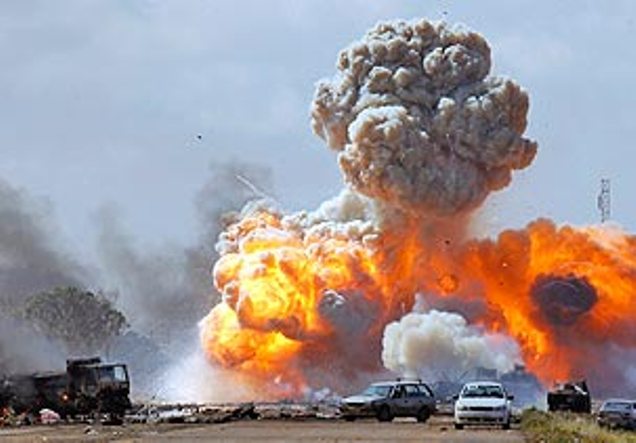
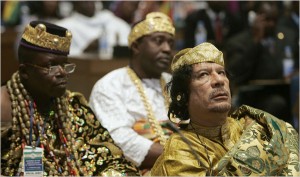
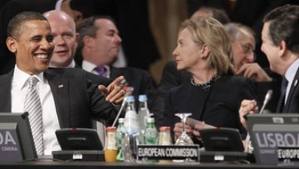
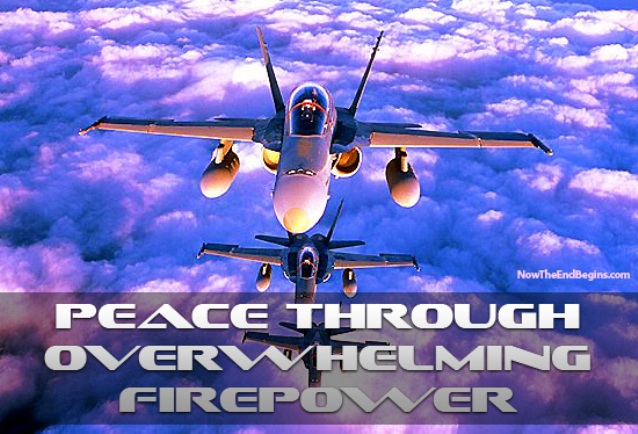
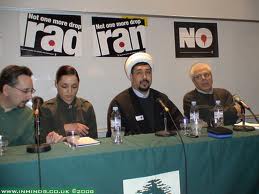
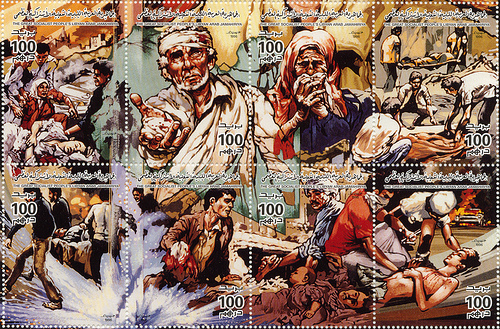
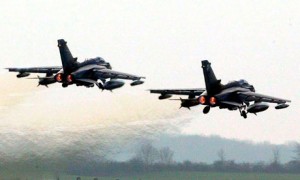

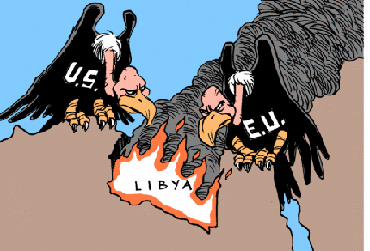




It’s a sad day in our country. I think President Obama got sucked in on this one. Just goes to show you that even smart people get hoodwinked now and then. I’m sure he regrets what he has done but, he’s in too deep now. It sure pains me.
Obama has not only managed to piss off white racists, he has done a great job in disappointing Black people.
USA never invaded Africa to protect the people of Riwanda or Black Africans during the aparthied era in South Africa as well…